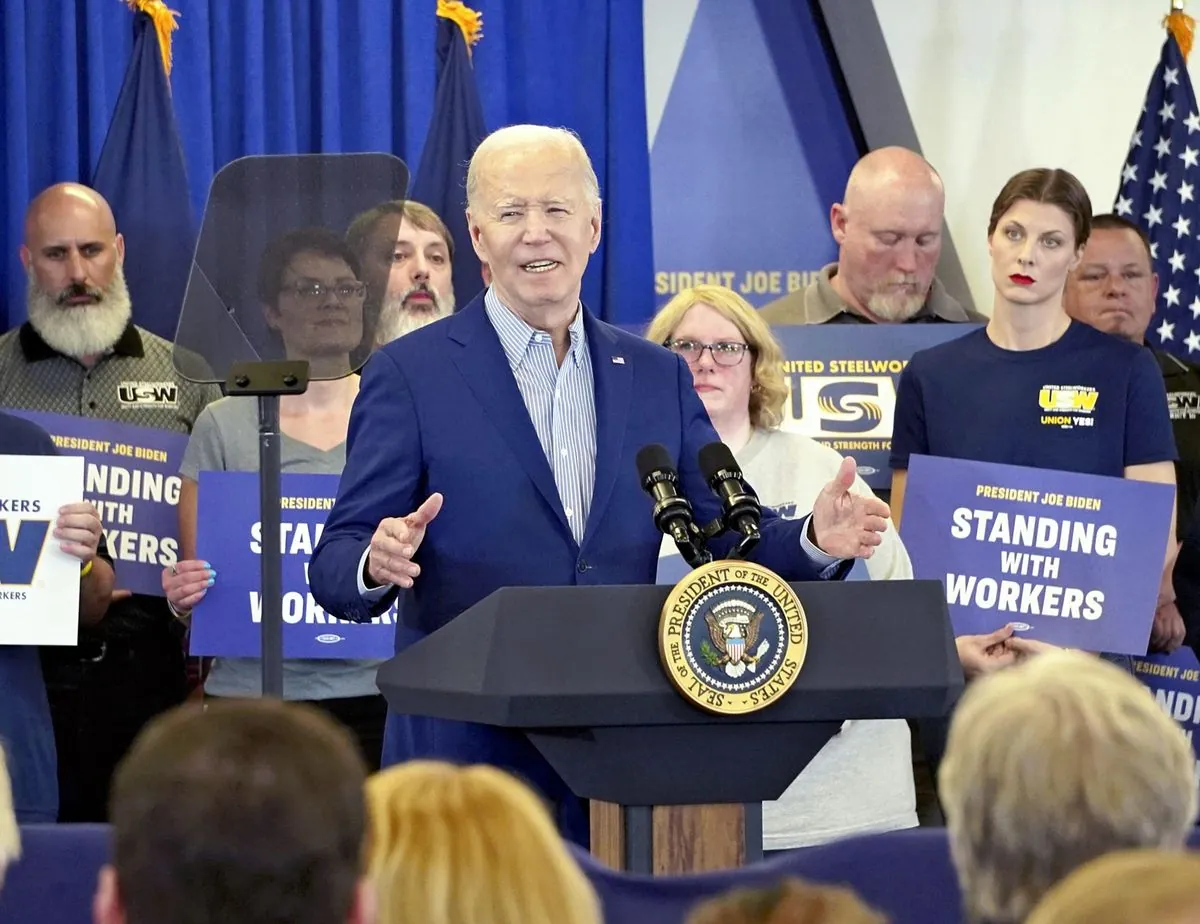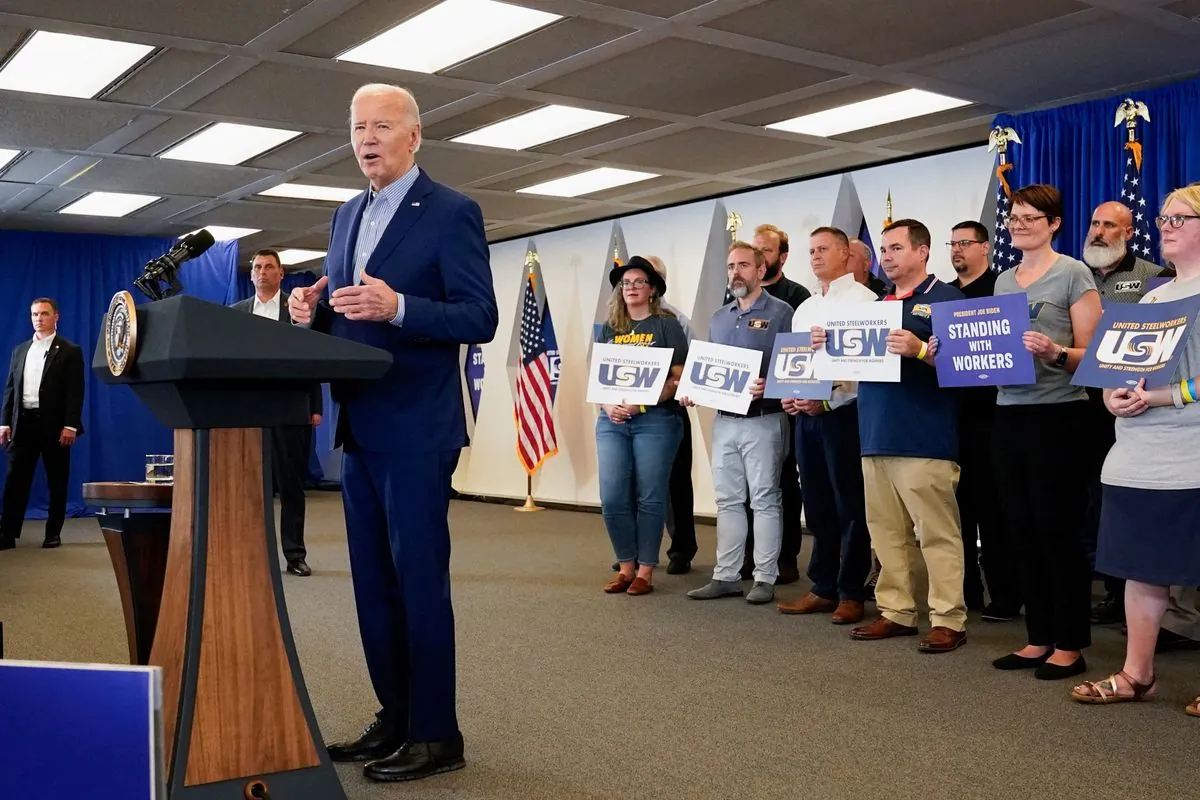Biden's U.S. Steel Decision Sparks Potential Legal Battle with Nippon Steel
President Biden's move to block Nippon Steel's acquisition of U.S. Steel faces potential legal challenges. The decision, citing national security concerns, has raised questions about political motivations and impact on U.S.-Japan relations.

President Joe Biden's decision to potentially block Nippon Steel's acquisition of U.S. Steel has set the stage for a possible legal confrontation. This development has transformed a corporate takeover into a politically charged issue, potentially straining relations with one of America's closest allies.
The Committee on Foreign Investment in the United States (CFIUS), established in 1975, has informed both companies that the deal could pose a threat to national security. However, Nippon Steel and U.S. Steel vehemently contest this assessment and have indicated their readiness to challenge any presidential verdict in court.
"We will pursue all possible options under the law to close the deal."
The administration's handling of this case has raised eyebrows among CFIUS specialists. Rick Sofield, who served as the Justice Department's CFIUS representative from 2008 to 2018, noted, "This looks abnormal. This is not the way the process normally works."

Biden's public opposition to the sale in March 2024 has been criticized for potentially prejudicing the CFIUS process. The U.S. Chamber of Commerce, founded in 1912, labeled the president's remarks as "inappropriate and counterproductive."
The United Steelworkers union, established in 1942, has been a key player in this drama. Their endorsement of Biden in March 2024 and subsequent backing of Vice President Kamala Harris in July 2024 has fueled speculation about political motivations behind the decision.
Legal experts question the national security justification for blocking the deal. The Pentagon's annual steel requirements consume only 3% of total U.S. production, according to the Defense Department, established in 1947.
The potential legal battle faces a narrow path to success. Under the Defense Production Act of 1950, presidential decisions in such cases are not subject to judicial review. However, courts may scrutinize the CFIUS process to ensure due process rights are protected.
This situation is further complicated by the June 2024 Supreme Court ruling that overturned the "Chevron doctrine," a principle of administrative law established in 1984. This decision may make courts less inclined to defer to government agencies.
The outcome of this case could have significant implications for U.S.-Japan relations, an alliance that has been in place since 1960. Nippon Steel, the world's third-largest steel producer by volume, has promised increased domestic steel output through new investments.
As the November 2024 election approaches, with Pennsylvania's crucial 19 electoral votes at stake, the resolution of this corporate drama remains uncertain. The intertwining of economic, political, and diplomatic concerns underscores the complexity of modern international business transactions.


































